Born in Kingston, Jamaica, Yolande Chan studied at the Massachusetts Institute of Technology before going to Oxford to read for an MPhil in management studies. After Oxford, she moved to Canada and worked in management consulting and then completed her PhD in business administration at Western University. Chan served as Associate Dean of Research, PhD and MSc Programs and as the E. Marie Shantz Chair of Digital Technology at Smith School of Business at Queen’s University before taking up her current position in the Desautels Faculty of Management at McGill University as Dean and James McGill Professor. In 2022, she was appointed to the Government of Canada’s Advisory Panel on the Federal Research Support System. At the time of the interview, Chan was Editor-in-Chief of the Journal of Strategic Information Systems. She has been awarded the LEO prize, the highest honour given to scholars by the Association for Information Systems. This narrative is excerpted from her interview with the Rhodes Trust on 11 October 2024.
Yolande Chan
Jamaica & Hertford 1982
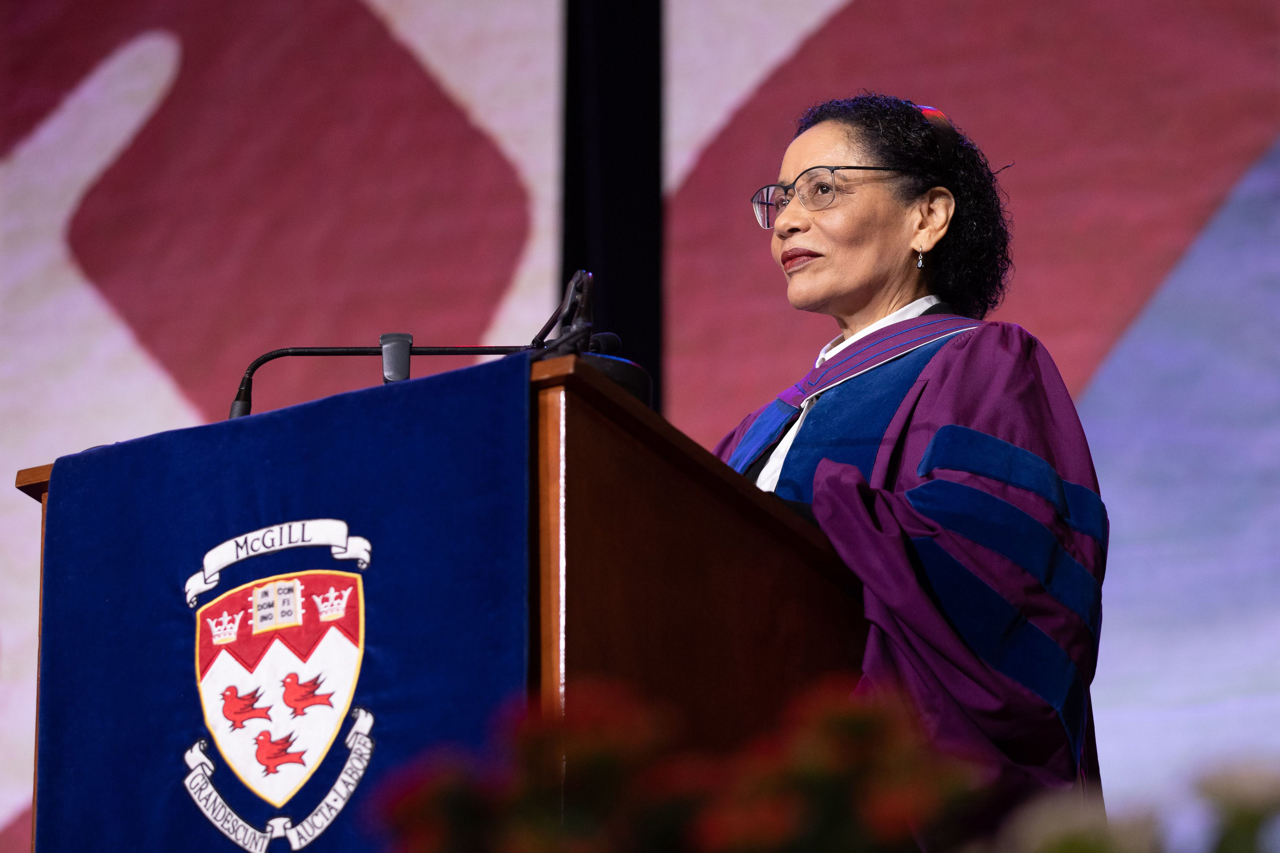
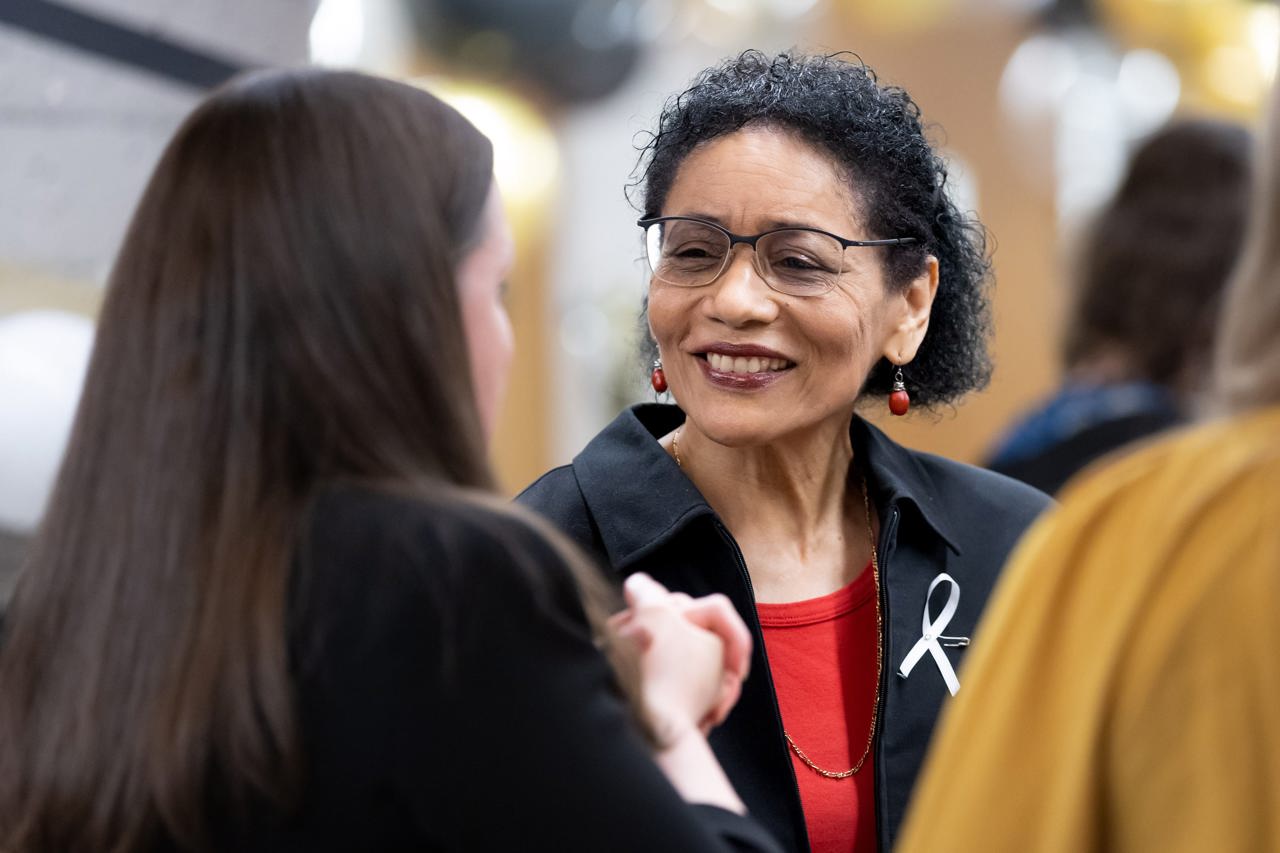
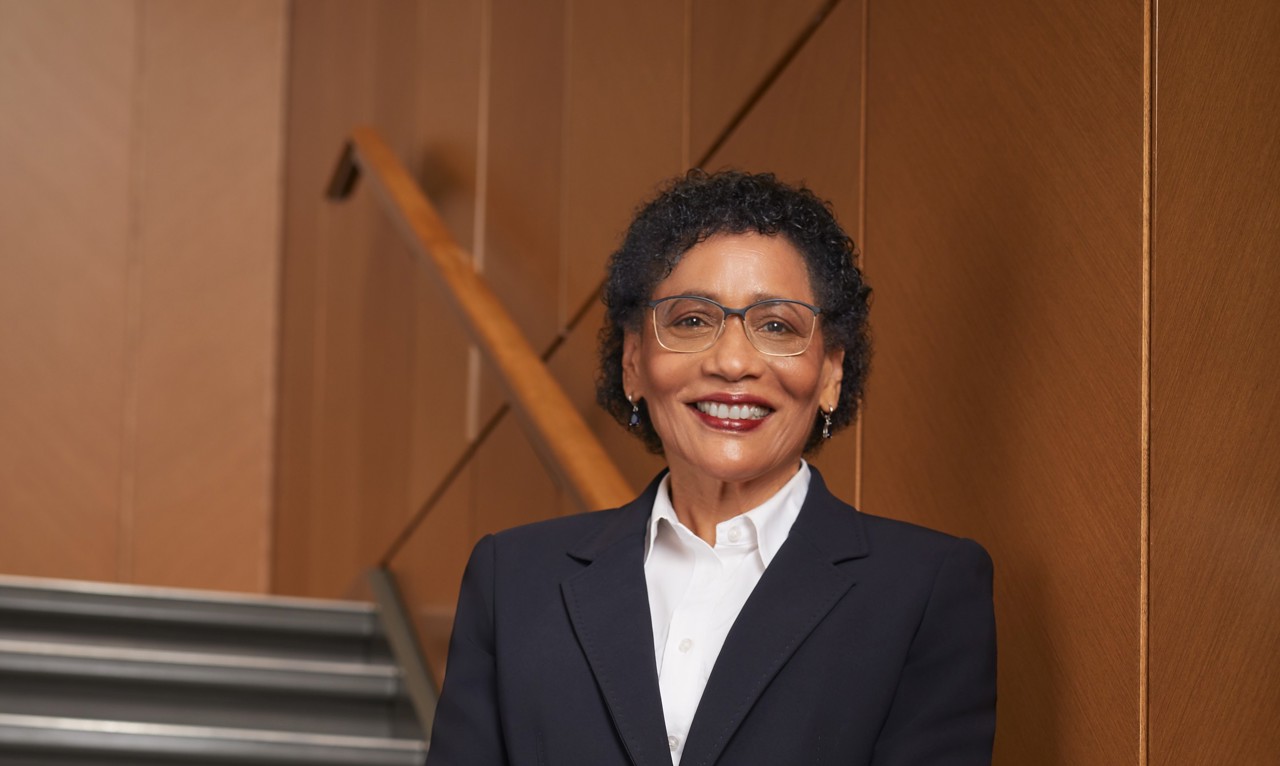
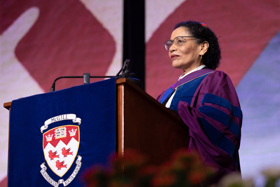
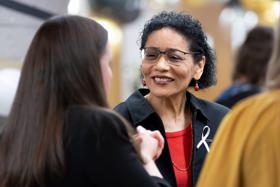
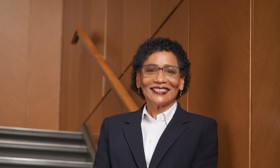
‘A very uplifting community’
I was born and raised mostly in Kingston, Jamaica and had a wonderful childhood. I’m a member of an extremely strong family. My dad was a prominent lawyer on the island and my mother had aspired to be a lawyer but gave up her own dreams to ensure that her four children would all succeed. She poured her life into her husband, her children, and her garden, and we were always surrounded by beauty.
Ours was a very uplifting community to grow up in. I had the privilege of going to one of the best schools on the island, Immaculate Conception High School, which was Roman Catholic. My family are Anglicans, and I know that some have had mixed experiences with religion, but for me, it was a very positive experience and I still have a very strong faith. At school, I was taught not just excellence in academics but also excellence as a person. Alongside my studies, I enjoyed athletics and I represented my school in field sports. I also spent a fair bit of time reading. After completing fifth form at ICHS, I went on to sixth form at Campion College, a Jesuit college and another top school, and that was also just amazing.
On applying for the Rhodes Scholarship
At the end of my sixth form years, I had a scholarship to go on to university in Jamaica, but I had also won scholarships to several US schools. I remember not knowing where to go, and I spoke to Sister Maureen Clare Hall, the headmistress at ICHS and asked for her input. She said, ‘They’re all amazing. I know you, though. You are very good at maths and you are very practical, logical, and solution-focused. I think you’re a very good fit for MIT.’ So, I went to MIT, and had really good years there. My scholarship was for four years, and in that time, I was able to do both an undergraduate degree in electrical engineering and also a master’s in electrical engineering and computer science. To do that, I had to be very efficient, very focused, and I was enrolled simultaneously in both degree programs during my last year. I learned a lot of discipline. I volunteered too, teaching other students about time management.
I feel such gratitude for the opportunity I had at MIT, but I can’t say it was an easy time. It demanded my best. And going into engineering classes, there were very few women. I do remember thinking that the odds weren’t stacked in favour of the few women in the classroom. I have wonderful memories from that time, especially around the hospitality shown to international students at MIT. But I also remember a life-changing experience I had when some friends and I went into a very poor part of Boston and I realised, all of a sudden, that there were people following us and taunting us and, horror of horrors, they were taunting me. I was the only person who was racialised. I was Black and everyone around me was not. There were comments and slurs, and my friend group circled around me and got to where we were going, but even after we bolted the door and went upstairs, the people outside continued to taunt and they began throwing stones at the door and the windows. It was my wake-up call. I had never seen myself as different before. I had never experienced overt racism. I couldn’t believe what was going on, and it changed my whole perspective.
I had planned to pursue a PhD, but I was working in one of the MIT labs and my lab mate, who was the star PhD student, was very eccentric. He would go to the lab and not leave for days, to the point where the lab smelled horrible. He slept there. And I said to myself, ‘If this is the model PhD, I’m pursuing the wrong career.’ At the same time, my father drew my attention to the Rhodes Scholarship and said, ‘I think you should apply.’ I did, but it was really just so that I wouldn’t disappoint him. When I got the news that I’d won, I burst into tears, but they were not tears of joy. I had just finished four years of incredibly intensive work, and now, there was more to come. I was good at being resilient, though, so I focused on the positive and never looked back, and it was such a dream. Getting the Rhodes Scholarship transformed my life, and in such a positive way that keeps giving and giving. I am so grateful to my father!
‘The biggest gift’
My experience as a Rhodes Scholar in Oxford was unbelievable and fully transformational for me, vastly beyond my dreams and expectations. I was a member of Hertford College and I had a room right above the MCR, the Middle Common Room. I had only been in Oxford a couple of days when a friend and fellow Rhodes Scholar brought another Rhodes Scholar to my door. The Scholar he brought to meet me was Michael Chan (British Caribbean & Lincoln 1982).
It was Michael’s first day in Oxford, so the poor man had no chance. He could not escape me! So, the Rhodes Scholarship gave me an amazing opportunity to get another degree, in management studies, and in Michael, it also gave me my husband, my future. In those days, you still had to ask the Warden’s permission if you wanted to be married, and that is what we did. We were the first Rhodes Scholar couple to be married while still in residence. I have lovely memories of living in Oxford. That was where Michael and I had our first home, and I remember the beauty of the city and of the river, the punting, the ceremonies. Oxford as a place is a gift, a bonus of the Rhodes experience.
‘I’ve always very much fostered and believed in mentoring’
Michael and I came to Canada, and he did his medical residency while I worked in what was then Andersen Consulting (now Accenture). My focus was on technology in business and ensuring that the investments made in technology were strategic and enabled businesses to be more competitive. After a time, I decided to go back to university in order to have more control of my schedule, because most years, I was travelling for what felt like more than half the year, and I wanted to have and care for children. I did my PhD at Western, on the management of information technology, and from there, Michael and I went to Queen’s, where I was a professor in the business school and he worked at one of the affiliated hospitals. Until I went to McGill, Michael and I lived very happily in Kingston, Ontario for many years. We raised our sons there. So, I had started my life in one Kingston and come to another.
I love working with people. When I work with students, for instance, I invest in their lives to give them knowledge and skills to help them discover who they are and succeed. I’ve always very much fostered and believed in mentoring students. Especially after my eyes were opened at Queen’s to even more diversity, equity and inclusion issues, I began very consciously to mentor racialised students. I had already previously focused on the success of women. Perhaps because of my own background in engineering and computer science, that has always been important to me. I believe in mentoring individuals while also creating policies, structures and resources so that students’ voices can be heard, and providing opportunities on a larger scale at the same time.
‘We are equipping leaders’
I think life is a gift, and I will say that service and gratitude are big for me. I want to use every day fully, and especially for others. I have that in common with a lot of Rhodes Scholars, and what I love about the Rhodes Scholar community is that we dream together about how we can go out into the world and do good for others. This is a challenging time for the Scholarship, because of the legacy of Cecil Rhodes, but I think it’s important to look forward. We are equipping leaders, world-changers and those who want to do great good. Without the Rhodes Scholarship, I’m not sure I would have the opportunity I have today to be the first Black dean and the second woman dean of a top international business school. The Rhodes Scholarship is part of my DNA, and it is a gift that keeps on giving.
